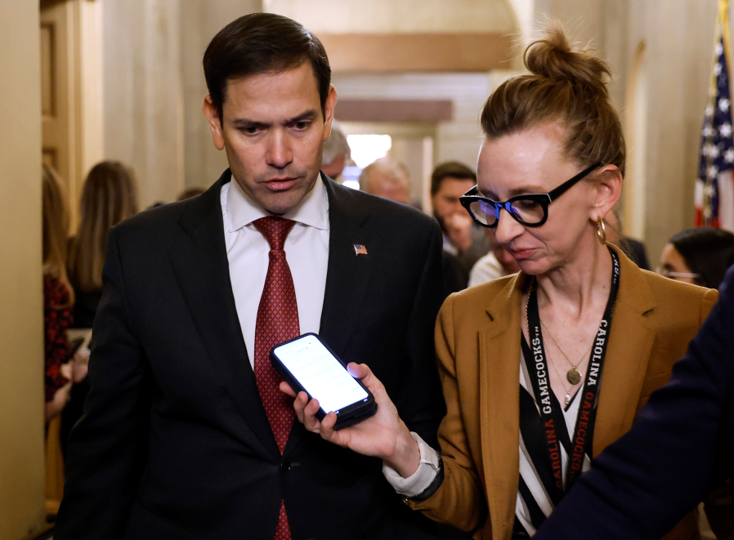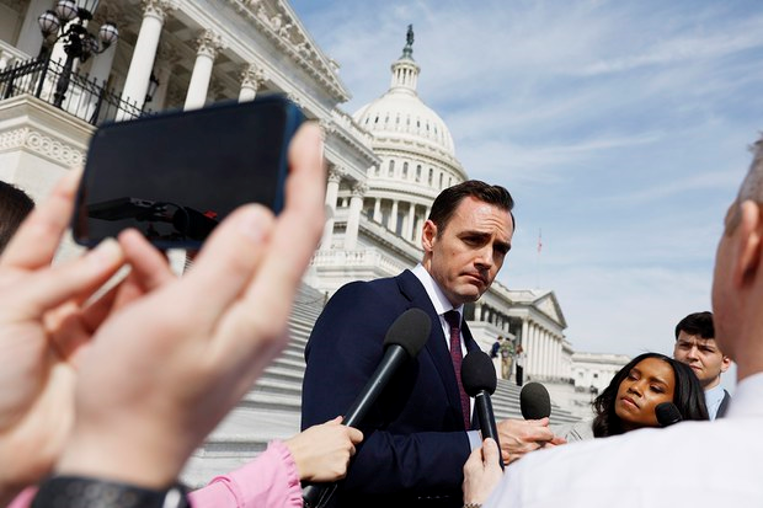Ever since Rep. Mike Gallagher (WI-8) introduced H.R. 7521—formally known as Protecting Americans from Foreign Adversary Controlled Applications Act and informally known as the “the bill to ‘ban’ TikTok”—early last month, there has been a whirlwind of responses: United States Senator Tom Thillis received a voicemail threatening his life if he voted in favor of the bill; President Joe Biden has signaled that he plans to sign the proposed legislation into law; mega-donors have threatened to cut off funding to any candidates that vote in favor of the bill; and former president Donald Trump has done an about-face, and now says he is against a TikTok “ban.”
Constitutional Considerations
The majority of the commotion was primarily spurred on by two concerns: the Bill violates the First Amendment rights of United States citizens; and the Bill broadly increases the President’s power, which could enable them to use their new-found power against other media companies that they deem as controlled by a foreign adversary.
The debate surrounding H.R. 7521—which aims to divest Chinese entity ownership in TikTok—and the concerns raised are justified. However, upon closer examination of the Bill’s language, and the precedents in similar statutes and judicial interpretations reveal that H.R. 7521 is consistent with the United States Constitution and is crucial for safeguarding our national security interests.
The first primary concern raised is whether H.R. 7521 infringes upon the First Amendment’s protection of freedom of speech. It is crucial to note that the First Amendment prohibits Congress from “abridging the freedom of speech,” but does not prevent the regulation of non-expressive conduct, including conduct that falls into the realm of “economic activity.” H.R. 7521 falls into the latter category as it regulates conduct—the ownership and control of a platform—rather than restricting speech directly. This distinction is significant as it means that the First Amendment likely does not apply directly to the Bill per Sorrell v. IMS Health Inc. (2011).
Even if one were to argue that the First Amendment is implicated, the Bill would have to face our most demanding constitutional test, strict scrutiny. This means that in order to pass, the government must show that the law serves a compelling state interest and is narrowly tailored to achieve that interest. Given the precision of the Bill’s language and that it is necessary to combat a pervasive national security threat, it would likely pass the strictest of scrutiny. Moreover, per United States ex rel. Turner v. Williams (1904), ByteDance Ltd.—the foreign entity primarily regulated by H.R. 7521—lacks First Amendment rights, further supporting the constitutionality of the Bill’s provisions.

The second concern surrounding the increased authority vested in the President by H.R. 7521, and their ability to designate applications as foreign adversary controlled stems from a misunderstanding of the Bill’s language. H.R. 7521 clearly defines who the foreign adversaries are: China, Russia, North Korea, and Iran. Additionally, the phrase “subject to the direction or control” in the Bill is often misinterpreted to encompass vague influence or alignment with foreign interests, contrary to its plain meaning and legal precedent. The phrase, as used in similar statutes and judicial interpretations—i.e. United States v. Rafiekian (4th Cir. 2021), Attorney General v. Irish People, Ind. (1986), 18 U.S.C. § 951, 22 U.S.C. § 611, etc.—requires an actual, binding relationship akin to a traditional agent-principal relationship, where an entity is obliged to follow foreign instructions.
Congress has repeatedly used this phrase in statutes including, but not limited to, regulating agents of foreign governments and entities providing material support to terrorism. In these contexts, the phrase has been consistently interpreted to require more than mere alignment or agreement with foreign interests. Courts have ruled that individuals or entities must be subject and obedient to foreign government commands. 18 U.S.C. § 2339B(h) explicitly states that “Individuals who act entirely independently of the foreign organization to advance its goals or objectives shall not be considered to be working under the foreign organization’s direction and control.” (Emphasis added)
Applying these principles to H.R. 7521, it becomes clear that the Bill’s provisions align with established legal interpretations and statutes. The limited authorization given to the President regarding foreign adversary-controlled applications does not constitute broad, sweeping powers akin to a “digital PATRIOT Act” like some of H.R. 7521’s detractors say. On the contrary, according to Sinologist Bill Bishop, it provides a narrow, practical approach to addressing a national security threat and is well within the authority vested in the executive branch.

Recent Example
Lastly, a scenario like this has already played out in recent history, specifically with the dating app Grindr. In 2016, Chinese company Kunlun Tech Co. Ltd bought a majority stake in Grindr. After a slew of data leaks, unethical uses of data, and privacy violations of users, the Committee on Foreign Investment in the United States (CFIUS) stepped in. CFIUS, which is chaired by the secretary of the Treasury, has the ability to scrutinize (and reject) foreign acquisitions of U.S. companies that it thinks pose a threat to American security. And it did just this in 2020 by encouraging a “conscious uncoupling” under the auspices of the potential national security threats the app could pose if it remained in Chinese hands (keep in mind that in China there’s no such thing as a private company, thus all companies are compelled by law to comply with the Chinese Communist Party). In March 2020, Kunlun sold its 98.59% stake in Grindr to the U.S.-based company San Vicente Acquisition LLC.
Conclusion
In conclusion, is TikTok a pernicious threat? Absolutely. However, we can’t simply sidestep the Constitution when we deem something to be a dangerous threat. That said, H.R. 7521 is specifically tailored to ensure that constitutional principles are upheld while helping to protect our national security interests from our foreign adversaries. Its regulation of non-expressive conduct, clear criteria for foreign adversary designation, and adherence to established legal interpretations and precedents demonstrate its constitutionality. By addressing critical concerns regarding foreign influence and control of digital platforms, H.R. 7521 strengthens the United States’ ability to safeguard its democratic values and security in the modern age, and therefore should be passed and signed into law ASAP.
Michael Bruce is a political consultant in the realm of congressional politics. He is also an avid reader and student of international relations, specifically US-China relations.

